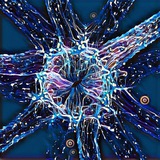group-telegram.com/neural_cell/277
Last Update:
What does it mean to understand the brain function?
In search of neuroscience paradigms [part 0 - introduction]
A lot of papers are published daily on brain function on multiple levels. What I found interesting is that each study contains an implicit set of assumptions, which are part of a larger research program. Thus, different researchers mean different things when generating scientific insight.
This can lead to vastly different interpretations of the same experimental result. The biggest problem is in my opinion that these assumptions/paradigms are kept implicit and researchers are sometimes not even aware which theories they assume to be true while generating hypotheses and conducting experiments.
I will attempt to bridge this brain-science to "meta-science" gap in the next few posts, of course on the level of a beginner PhD student and from a perspective of a neuroscientist (within rather than above science) that seeks precision and awareness of scientific frameworks we all choose to work on.
Neuroscience is one of the fields with a unique position in this regard - as opposed to physics we really don't have a coherent picture unifying different scales where we established certain laws. We actually rarely have laws and theories that are universally accepted - this is the beauty of being in this field, but also a curse because hot debates are unavoidable.
So, in the next posts I will cover some of the old and emerging theories & frameworks about what it means to understand a biological neural network:
1. "Grandmother cells" & single-neuron frameworks
2. Cell-assemblies & Hebbian associations
3. Embodied & ecological cognition, naturalistic settings
4. Predictive coding & Bayesian brain
5. Feedforward processing & I/O relations, decoding
6. Dynamical systems & population codes
7. Connectomics & structural mapping
8. Computations in electric fields vs spiking
9. Cognitive modules vs distributed processing
What I won't cover for now but maybe will, is the philosophy of scientific insight (realism vs instrumentalism, functional vs mechanistic, reductionist vs holistic, explanation vs description). Also I won't touch AI computations for now, however might do in the future when it becomes more relevant to my research.
Hopefully, after this post series you will gain something valuable to apply to your work. Or you will learn about the existential troubles neuroscientists face, if you're just interested in the field 😉
Which topic would you like to read about first?
P.S. As for the extended read for those interested, here is the paper that stimulated my deeper exploration. Frankly I did not enjoy it too much but it definitely asked the right questions and forced me to try to prove the authors wrong.
BY the last neural cell

Share with your friend now:
group-telegram.com/neural_cell/277
